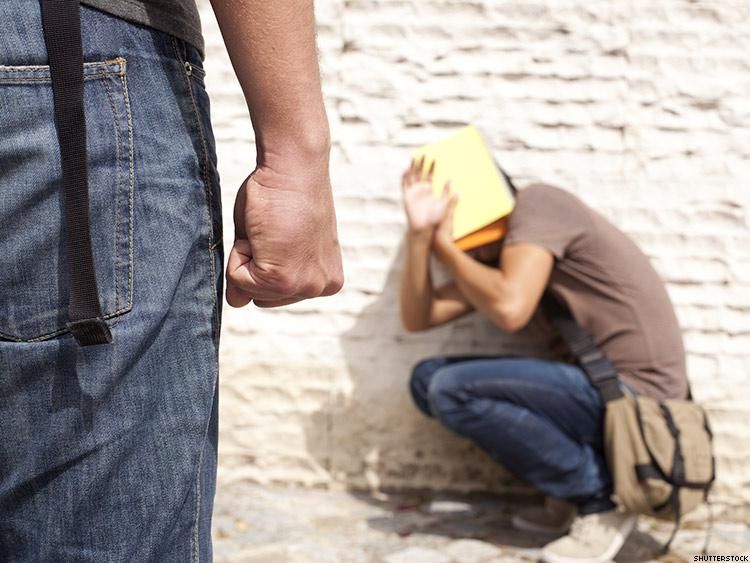 Ashley VanPevenage
Ashley VanPevenageYou may recognize me from my photo that was turned into a cruel meme. In January of 2015, a friend of mine who runs a makeup Instagram account asked to do my makeup. I was having an allergic reaction to benzoyl peroxide at the time and I knew I needed help covering my acne. The makeup artist posted a before-and-after photo of my makeover on her Instagram timeline. Months later, I was told that there was a meme circulating of me.
I almost couldn’t believe it until I was mysteriously tagged in a Facebook post of my meme by DJ Samy Irssak. At that point the meme had been shared over 125,000 times. I think at one point Twitter tracked the meme at over 5 million shares. That meme now has over 7 million shares across Facebook, Twitter, and YouTube combined.
There were hundreds of thousands of shares and horrible comments. Most of them were making fun of my acne and how I looked. I think the most popular hate comment was “This is the reason you have to take a bitch swimming on the first date.” I already had a hard time struggling with my acne, and now it was impossible for me to have any self-confidence, knowing what people were saying about me. The comments and shares were not just in the U.S. but around the world. Imagine waking up one day and feeling like the world thinks you're the ugliest person on the internet.
It was all starting to get to me so I decided to post a video on YouTube called “My Response to My Viral Meme.” I wanted to get the message out there and show that there is a real person behind those memes that everyone laughs at. I wanted people to know that I wasn’t going to let the horrible comments or negativity get to me. I wanted to use my experience to help anyone else who may be a victim of cyberbullying. That video went viral and had over 1 million shares. There was a lot of support that came from people who had heard my story. I started to get my confidence back when I started treating my acne and actively researching how I could help other people like me.
I stopped focusing on social media and focused more on myself. I realized this situation created a new purpose for me. I was still picking up the pieces of my self-esteem to face friends and peers at school who I thought saw the meme. As it turns out, the thing that ridiculed me eventually led to curing my acne. Dr. David Lortcher of Curology reached out to me to help after seeing an article about me. After my skin cleared, I regained my confidence and wanted to help those with the same experience as mine by starting Cure the Hate.
Cure the Hate is a cause I started to raise awareness on acne shaming and cyberbullying. I researched cyberbullying foundations that I could partner with. The Tyler Clementi Foundationwas the one that I connected with the most. After reading Tyler’s story, I was impressed by all the work the foundation is doing its Day 1 campaign. I also found out theTyler Clementi Foundation is the only cyberbullying foundation that offers free legal services to victims of cyberbullying. I decided to reach out to the foundation to see if it might be interested in supporting Cure the Hate and becoming a partner. My goal is to raise the foundation’s #upstander pledges to the millions!
Continuing with our efforts to put an end to cyberbullying, I came across an article about the new cyberbullying trend called "roasting," which often involves groups of girls bullying a male youth. I want to break the cycle and be an advocate for males too. Its interesting to see how the tables have turned, since guys were the ones continually ridiculing and posting hateful comments about me. I truly believe that what happened was meant to happen so that I can help put an end to the monster that is cyberbullying.
Cure the Hate has gained support from YouTube digital influencers and pop icons such as Michelle Phan (Ipsy), Honey B Eileen (Celebrity MUA), Cassandra Bankson (model, acne activist, YouTube creator), Kelly Osbourne (pop icon) and Dani Mathers (Playmate of the Year). Please get involved.
(RELATED: Dharun Ravi's Conviction Overturned in Tyler Clementi Case)
ASHLEY VANPEVENAGE is a college student from Tacoma, Wash.


 hivplusmag
hivplusmag




 hivplusmag
hivplusmag










































 pride
pride

